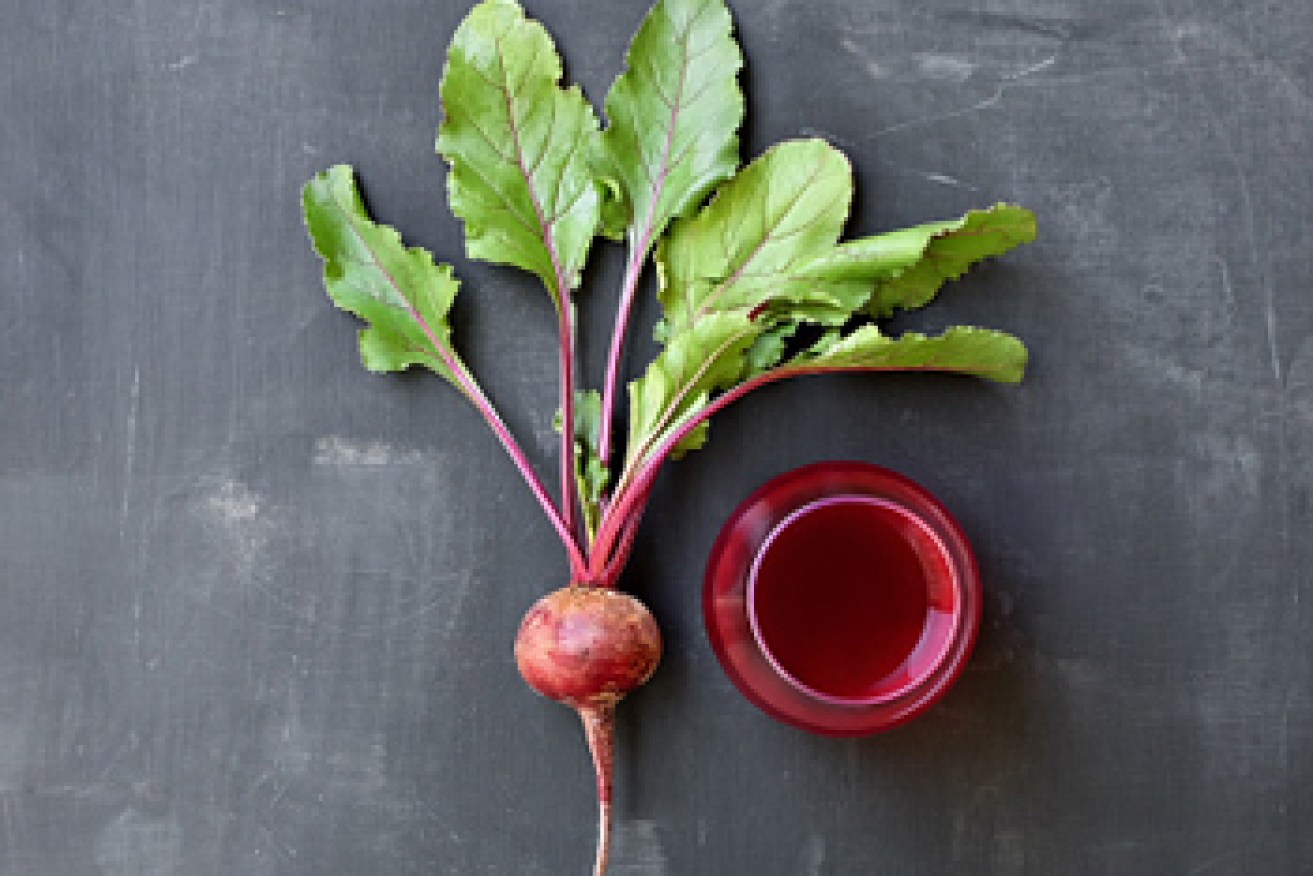The healthy benefits of the beloved beetroot


Photo: Getty
The benefits of beetroots extend beyond their sweet, earthy taste to a possible health and exercise boost, according to new research.
A joint study from The University of Western Australia, the Australian Institute of Sport and the West Australian Institute of Sport found a shot of beetroot juice improved the stamina of top-level Australian kayakers.
Researchers gave six male kayakers a 70ml shot of beetroot juice and five female kayakers a 140ml shot, before getting them to do four-minute tests on a rowing machine.
• Should you consider getting LASIK surgery?
• The only popular diet supplement worth buying
• The air could be making us fat
“We measured them for time-trial performance and paddling economy, and saw that they’d improved their efficiency when they’d taken the beetroot juice as opposed to some kind of placebo,” said UWA researcher Dr Peter Peeling, who worked on the study.
“Then we moved that out of the lab and got athletes to do a 500-metre time trial on the water, and we found the athletes who’d consumed the beetroot performed better there as well, so their performance times improved by 1.7 percent.”

Perhaps you could mix them into a pre-workout smoothie. Photo: Getty
At an Olympic level, an improvement of 1.7 per cent could be the difference between silver and gold.
The UWA findings accord with extensive research in the UK that found beetroot juice also allowed for longer sustained periods of exercise in cyclists, runners, amateur athletes and people who exercise for fitness.
Beetroot for fitness
Sports dietitian Alison Patterson told The New Daily that beetroot juice’s high levels of nitrates, converted into nitric oxide in the body, can help us exercise for longer.
“Nitric oxide has a number of effects on the body, including vasodilation to increase blood flow to the working muscles, and it also helps make muscle contraction more efficient,” Ms Patterson said.
“So the main benefit of taking beetroot supplements appears to be that an individual can exercise at a greater intensity and for a greater time, for the same level of effort.”
Ms Patterson said the average exerciser will see the same benefits to performance as elite athletes in drinking more beetroot juice, and that it’s far easier to drink the beetroot’s juice to get the necessary amount than it is to eat the vegetable itself.
“The amount [of beetroot] you’d need to eat is reasonably large … quite a big plateful. The benefit of beetroot juice is that the part rich in nitrate is concentrated down into a small juice so you don’t need to have as big a volume to get the nutrients.”

There may be benefits beyond exercise. Photo: Getty
Fruits and vegetables like strawberries and rocket are also nitrate rich, but their benefits to stamina have not been as well researched.
An un-beet-able food all round
Aside from its benefits to stamina, consuming beetroot has also been shown to be useful in preventing and fighting cancer.
This is because beetroots contain nutrients called betalians, the pigments of which obstruct the growth of tumours in many parts of the body.
Moreover, a December 2012 study by the Baker IDI Heart and Diabetes Institute in Melbourne found that a 500ml glass of the juice led to an average drop in blood pressure of four to five points after six hours in test subjects.
Professor Peter Clifton, who helped conduct the Baker Institute Study, said people should review how good their health is before starting to gulp down the beetroot juice.
“There is evidence that beetroot extract improves function of the heart and tolerance to exercise, so it might be helpful for people with heart problems. But for someone with no blood pressure or heart problems, it won’t really have an effect.”









